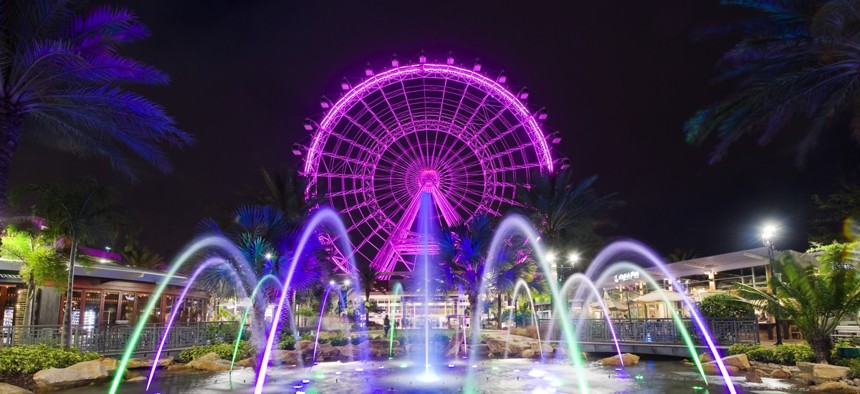5 Cities Take Smart City Planning to the Next Level

Orlando, Florida
From engaging underserved populations to preparing for climate change’s most devastating effects, these cities have their work cut out for them.
Five cities will develop strategies to deploy smart technologies in an inclusive fashion that promotes economic development, after winning Smart Cities Council Readiness Challenge grants Wednesday.
Austin, Indianapolis, Miami, Orlando, and Philadelphia were selected out of 130 applicant cities to receive a tailored “readiness workshop,” as well as products and services from the council’s member vendors like AT&T and Dow Building and Construction.
Guidance will be provided by both the council and runner-up cities Birmingham, Alabama; Chula Vista, California; Jersey City, New Jersey; Newport News, Virginia; and Providence, Rhode Island.
“Breaking down the departmental silos is a key challenge in developing a smarter city,” said Jesse Berst, SCC Chairman, in the announcement. “Each of the winning cities has demonstrated the ability to work across departments to solve problems.”
Austin wants reach underserved, unengaged populations with mobility and affordable housing solutions.
Indianapolis will strengthen its smart utilities and transportation, like Marion County’s electric bus rapid transit system currently in development.
Miami is focused on urban resilience against tidal floods. A Sea-Level Rise Pilot program aims to use geographic information system data across departments with 3-D modeling, waterfront sensors and LIDAR to alert the city to flooding ahead of time.
“This work alongside the Smart Cities Council will help us foster openness and the community collaboration needed to achieve smarter solutions,” said Mike Sarasti, Miami’s chief innovation officer, in a statement. “It’s an invaluable partnership as we strive to meet the city’s most pressing challenges.”
Orlando and Orange County are global tourist destinations necessitating smarter transportation solutions integrating sensors and communications.
Philadelphia’s plan involves breaking down silos within government to create a regional smart cities ecosystem.
“We have been building a coalition of city, community, business and educational institutions,” said Philadelphia Mayor Jim Kenney in the announcement. “They are all enthused and ready to help with smart city projects focused on the built environment, telecommunications and basic public services like water.”
Dave Nyczepir is a News Editor at Government Executive’s Route Fifty and is based in Washington, D.C.
NEXT STORY: If You Build Broadband Infrastructure, Data Centers Will Come






